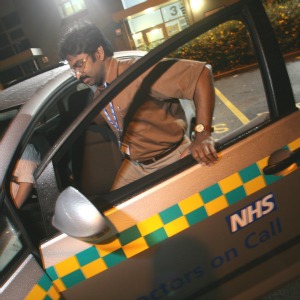Almost half of GPs have turned down out-of-hours work as a result of medical indemnity cover, a new report has revealed.
In a report funded by CareUK, both private and not-for-profit GP providers of out-of-hours care have called for medical indemnity providers to charge more reasonable premiums after a survey of 1,000 GPs revealed that 46% of GPs had been put off out-of-hours work as a result of high costs of medical protection fees.
The report – Urgent and important: the future of urgent care in a 24/7 NHS – also revealed that 59% of GPs felt that out-of-hours services were not a high enough priority for the NHS.
The authors say out-of-hours GP services have ended up being marginalised over the past decade, through NHS reorganisations and GP contract changes, leading to a ‘chronic shortage’ of staff.
It also calls for an end to perverse incentives in contracting and tariffs that the authors say currently inhibit working between GPs and A&E emergency services.
The findings come after complaints from GPs about big hikes in medical indemnity fees to cover urgent care provision, which led the BMA to lobby medical defence organisations to offer discounts to GPs working out of hours.
A groundbreaking risk-sharing scheme set up to tackle the problem in Wales led to an increase in GPs willing to take on out-of-hours work, but the arrangement has yet to be adopted elsewhere.
The report states: ‘The commission expressed concern that indemnity providers are focused on mitigating against the risk of a single, rare case that will have significant financial consequences. The result is soaring costs of indemnity in out of hours, which has led to many healthcare professionals stepping back as the work offers low financial incentive.’
It recommends: ‘Medical indemnity providers should take into account the quality and performance record of the provider when looking to associate levels of risk for the provider workforce.’
The report was produced by a commission led by the former Department of Health national clinical director for primary care Professor David Colin-Thome, and including Dr Agnelo Fernandez, the RCGP’s lead on urgent and emergency care, Dr Simon Abrams, chair of Urgent Care UK, and Dr Fay Wilson, former GPC member and chief executive of the BADGER out-of-hours consortium.
Dr Rob Hendry, medical director at the Medical Protection Society (MPS), said: ‘In MPS’s experience the nature of the case mix presented in out-of-hours is more likely to give rise to higher cost claims. As a not-for-profit organisation, we must ensure that we collect sufficient subscriptions to be in a position to meet the future costs of defending claims against members.
‘Because the provision of out-of-hours services is crucial, MPS believes that Government should undertake a full review to consider what barriers stand in the way of uptake of out-of-hours’ work by GPs and what policy proposals might tackle these issues.’

















